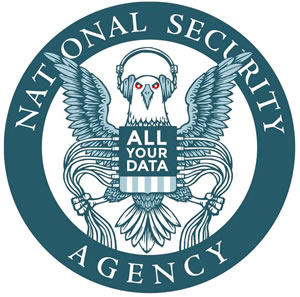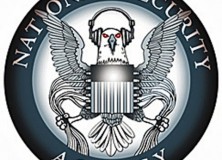 The overhaul amounts to the wolf hiring a fox to guard the hen house.
The overhaul amounts to the wolf hiring a fox to guard the hen house.
President Barack Obama gave an extended speech today that was supposed to be a major overhaul to some of the National Security Agency’s most disputed surveillance operations seven months after they were first exposed. It was hoped that the changes would result in reining in the metadata collection program among others.
Little has changed that protects our privacy. It simply dressed the wolf in sheep’s clothing.
Effective immediately, President Obama said, NSA officials must obtain court permission in order to access the government’s archive of telephone metadata — a trove of intelligence that has been regularly collected by the government through a program that its proponents say is a legally sound and crucial counter-terrorism tool justified under Section 215 of the United States Patriot Act.
The problem with this requirement is that the court which must grant permission is the FISA Court. This is the same secret court that has only denied 11 requests from intelligence agencies, out of more than 30,000 it decided upon.
Evidence of the metadata collection program was exposed last June through classified documents disclosed to the media by former NSA contractor Edward Snowden and spurred an immediate and ongoing international discussion that culminated with the president’s endorsement of reform during a Friday morning speech inside the Justice Department building in downtown Washington, DC.
“I believe we need a new approach,” Mr. Obama said. “I am therefore ordering a transition that will end the Section 215 bulk metadata collection program as it currently exists, and establishes a mechanism that preserves the capabilities we need without the government holding this bulk metadata.”
Exactly who will be in charge of holding onto the phone records pertaining to millions of Americans has yet to be decided, however, and Mr. Obama says he’s tasked United States Attorney General Eric Holder, the intelligence community and Congress with finding a solution.
In essence, this means the government will decide what third party is given the responsibility of securing the information from the government and this third party is overseen by the government to ensure that they (the government) doesn’t see information they aren’t supposed to see.
Among the first of top-secret documents leaked by former NSA contractor Edward Snowden since June is evidence that revealed the US government has regularly compelled the nation’s telecommunication companies for so-called metadata, in turn receiving on routine basis the primitive details about each and every phone call dialed. But while Mr. Obama and his administration has largely defended the program up to and during Friday’s speech, critics have condemned that program and others like it exposed by Mr. Snowden and have accused the government of violating the civil liberties and rights to privacy of not just Americans, but millions around the globe.
The president said during his address that he wouldn’t “dwell on Mr. Snowden’s actions or his motivations,” citing the ongoing investigation into the leaks, but insisted that when individuals who oppose government policy take it upon themselves to publically disclose classified information as the former contractor did, then the US government “will not be able to keep our people safe or conduct foreign policy.” WikiLeaks founder Julian Assange, an ally of Snowden, told CNN that the leaker will respond to the new NSA reforms next week.
Other documents disclosed by Mr. Snowden since June have revealed NSA programs that target the communications of foreign persons, including average citizens and allied leaders alike. As expected, Obama announced his intent to reform some of those operations during Friday’s address as well.
Revelations that the NSA had tapped the personal phones of foreign leaders like German Chancellor Angela Merkel caused outrage around the world last year, but on Friday’s speech Mr. Obama said that the US is the “world’s only superpower” and must continue to conduct operations allies are not able to accomplish on their own.
“We will not apologize simply because our services may be more effective,” the president said, “but heads of state and governments with whom we work closely . . . should feel confident that we are treating them as real partners.”
So, the next time a husband or wife places a tracking/spyware program on their mate’s phone or computer in order to see what they’ve been doing all day, remember that the significant other isn’t spying. They are simply treating their mate as a “real partner.”
The US government “will continue to gather information about the intentions” of foreign governments, the president said. On the contrary, though, he also promised the NSA “will not monitor the communications of heads of state” atop the ranks of allied partners unless there are compelling national security purposes at stake. Section 702 of the Foreign Intelligence Surveillance Act (FISA) will be subjected to new reform as well, he said, allowing the government to intercept the communications of overseas targets with important information without putting as many Americans and foreign persons incidentally targeted under the looking glass.
Meaning the government will continue doing what it has been doing, only this time we can trust them to get approval from those who automatically approve spying on everyone.
Disclaimer: On January 4, 2016, the owner of WestEastonPA.com began serving on the West Easton Council following an election. Postings and all content found on this website are the opinions of Matthew A. Dees and may not necessarily represent the opinion of the governing body for The Borough of West Easton.







